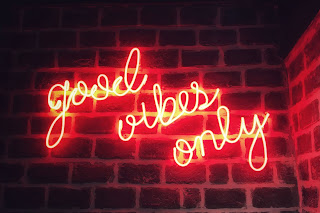Lies of Positivity Culture and How to Counter Them
I have had conflicted feelings about positive thinking for as long as I’ve been aware of the concept. I want to support it. There is increasing scientific evidence to suggest that positive thinking can improve mental health, stress coping strategies, recovery from trauma, and self-esteem. There are copious resources in self-help books, therapy, motivational speakers, and websites. Positive thinking proponents insist that you can change your outlook, rewire your brain, be more successful, and be healthier just by turning your frown upside down and stop thinking “cannot” and start believing “can do!” It takes some core components from cognitive behavior therapy, in that the goal is to change how you interact with the environment and to consciously shape how you process stimuli.
I use similar techniques to change my self-perception, cope with anxiety, and to help stall catastrophizing. There is certainly something to be said about how complaints and a completely negative outlook reflect on your personality and influence interpersonal relationships. Rather, my concern lies in positivity culture: be happy, make other people around you happy, sad or angry feelings are bad.
Being happy is important, but we aren't designed to be happy all the time. Pretending to be happy is denying the depth and breadth of our experience. Pretending to be happy is the loneliest feeling in the world (and I know lonely). By putting all of our effort into "positive" emotions and focusing on our "positive" experiences, we stunt ourselves. How can we grow as people if we don't sit in our sadness? If we don't come to understand where our anger comes from? How can we understand our self-destruction and hubris without examining our whole selves?
This is shadow work - challenging, intense, difficult to look at directly. You're looking at the worst parts of yourself, the dark bits, and learning to understand them. To pull them apart, strand by strand, and weave them back into yourself. It took me a very, very long time to learn the difference between this and wallowing in it (I was never one who flinched from my demons...I embraced them like lovers and caused a mess in the process...), but I gained significantly more control when I did. Knowing the sources of your pain, rage, sadness, and other "negative" feelings helps you develop a more nuanced, balanced mindset. I find that I am more gentle with myself when I am consistent in my shadow work - I better understand my limitations and boundaries.
I have felt for a long time that positivity culture seeks to deny us this work. It tries to subsume in with brilliant smiles and tinny laughter. Positivity culture is isolating and two-dimensional - bright lights on a white backdrop. It lies to us. It tells us that no one will like us if we aren't smiling, if we are vulnerable, if we aren't sunshiney all the time. This path leads to addiction, to fear, to isolation, to codependence.
Feel your sadness, pain, rage. Share it in art, activism, education. When you can understand it, translate it, understand where it comes from, you can both be a more whole person and find your community.
Feel your sadness, pain, rage. Share it in art, activism, education. When you can understand it, translate it, understand where it comes from, you can both be a more whole person and find your community.
Be positive. Seek things that make you happy. Understand the things that don't.

Comments
Post a Comment